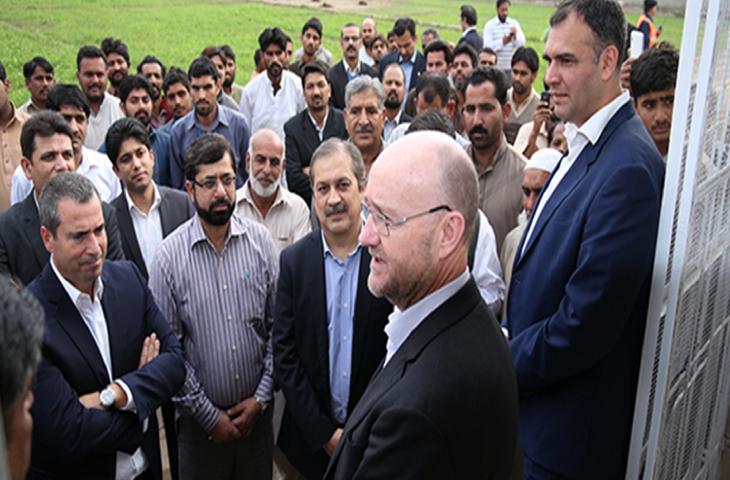MILAN – On the 26th of November the CEO of Nestlé Waters, Marco Settembri, inaugurated a drinking water system in the Bhatti Dhilwan community, in Pakistan, located near the Nestlé Sheikhupura factory. The new system will provide at least 5,000 people who live in the surrounding areas with clean drinking water on a daily basis.
The commitment of Nestlé Waters
Settembri said that: “Reducing the gap between demand and supply of water is imperative if we are to thrive as businesses, communities and countries. We are committed to the management of water on a global level, adopting sustainable practices above all in the areas in which we operate, where our water sources are located and our consumers live. Local communities have an important role to play in reaching this goal.”
The Community Engagement Program
Access to drinking water is a key challenge for Pakistan. Of the total water available in Pakistan more than 95% is used for agriculture in rural areas, 2% by municipalities for urban areas and 2% by industry. As part of the Community Engagement Program, Nestlé Pakistan has constructed seven plants that provide drinking water to about 35,000 people every day. An eighth plant is being built in Allahabad (near the Kabirwala factory) and will be operational by the end of 2015.
Alliance for Water Stewardship
An agreement between Nestlé Pakistan and WWF-Pakistan has also been signed, on the basis of which the latter will help the company implement the Alliance for Water Stewardship, a joint project of local stakeholders to draw up water management best practices, apart from the industrial sector.
Responsible management of water
Bruno Olierhoek, CEO of Nestlé Pakistan said that: “Between 2003 and 2013 alone we have improved water efficiency by 22% and we also treat wastewater before it re-enters industrial processes. However, we recognize that, as managers responsible for water we need to build alliances and educate all the stakeholders.”
by Alessandro Conte











